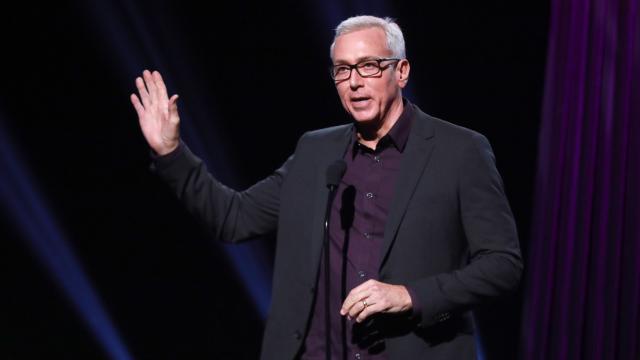Of all the dumb stuff some of us are guilty of indulging in during the current pandemic, downplaying its severity is certainly common. We’ve seen Sean Hannity do it. We’ve seen Elon Musk do it. And while a ton of us have probably seen Dr. Drew do it—thanks to a supercut of the media mogul that went viral over the weekend—he seems to be the only one of these media moguls that’s hell-bent on erasing any evidence that he ever downplayed the pandemic in the first place.
In a now-deleted tweet thread, the doctor claimed the cut of clips taken from February and March of this year infringed “copywrite[sp] laws,” telling one person who uploaded the cut to “hang onto your retweets,” or “erase [the post] to be safe.”
While at least one copy of the initial video is still circulating around on YouTube thanks to a user calling himself “Dr. Droops,” it looks like the original version was ripped from the video-sharing site—not by the creator, but by Dr. Drew himself. Anyone who tries visiting the original URL that housed the video will find that the initial creator was smacked with a copyright claim from Dr. Drew’s own production company: Drew Pinsky Inc.
This copyright strike—which we’ve screengrabbed in all of its faux-legal glory—is just the latest example of The Streisand Effect: the term coined back in the early aughts to refer to anyone’s attempts to censor intel about themselves online, only to bring their screwups to harsher light in the process. After all, neither I nor my friends watch much Dr. Drew, so the clip—in which he seriously downplays the seriousness of a pandemic that’s claimed roughly 10,000 lives in the US alone—initially avoided my line of sight. But when he started invoking YouTube’s notoriously shitty copyright policies to cover it up, suddenly I’m very, very interested.
Even if Drew wishes that it was, the original supercut—where he calls the Coronavirus “way less virulent than the flu,” insists that headlines should be branding it “way less serious than influenza,” and jokes about the idea of possibly shutting down the Olympics—isn’t unlawful in the slightest. While the clips themselves were posted without his say-so, the content of the clips fall squarely in the realm of criticism and in the public’s interest, making the supercut itself fall squarely within the realm of fair use. And as Techdirt points out in their own coverage, the courts have been telling plaintiffs for nearly half a decade that they need to be mindful of fair use before sending down a takedown, following the Lenz v. Universal Music case of 2015.
Just to be totally clear, seeing Dr. Drew irresponsibly downplaying the threat of the coronavirus is in the public interest because he’s a TV doctor and many people take what he says seriously. The reality is that Drew specialises in addiction, he’s not an epidemiologist, and your life would be no worse if you ignored his existence entirely.
It’s worth noting that around the same time that these strikes—and Twitter threats—were sent out, Drew took to Twitter himself to admit that he was wrong in his initial stance on COVID-19. “My intention was to lessen the panic that I could see coming,” Drew explained over a video stream he’d published to Twitter on Saturday night. “I was trying to get people to measure their emotional response to the other numbers we were seeing,” he added, comparing it to the more than 60 million cases of H1N1 roughly a decade ago, not to mention the millions of flu cases reported by the CDC this year. Strangely absent from any of these apologies is any mention of his attempts to quash the clips that started this conversation in the first place. But you can find all the clips you need on YouTube to make your own supercut of Dr. Drew getting way out of his lane.
